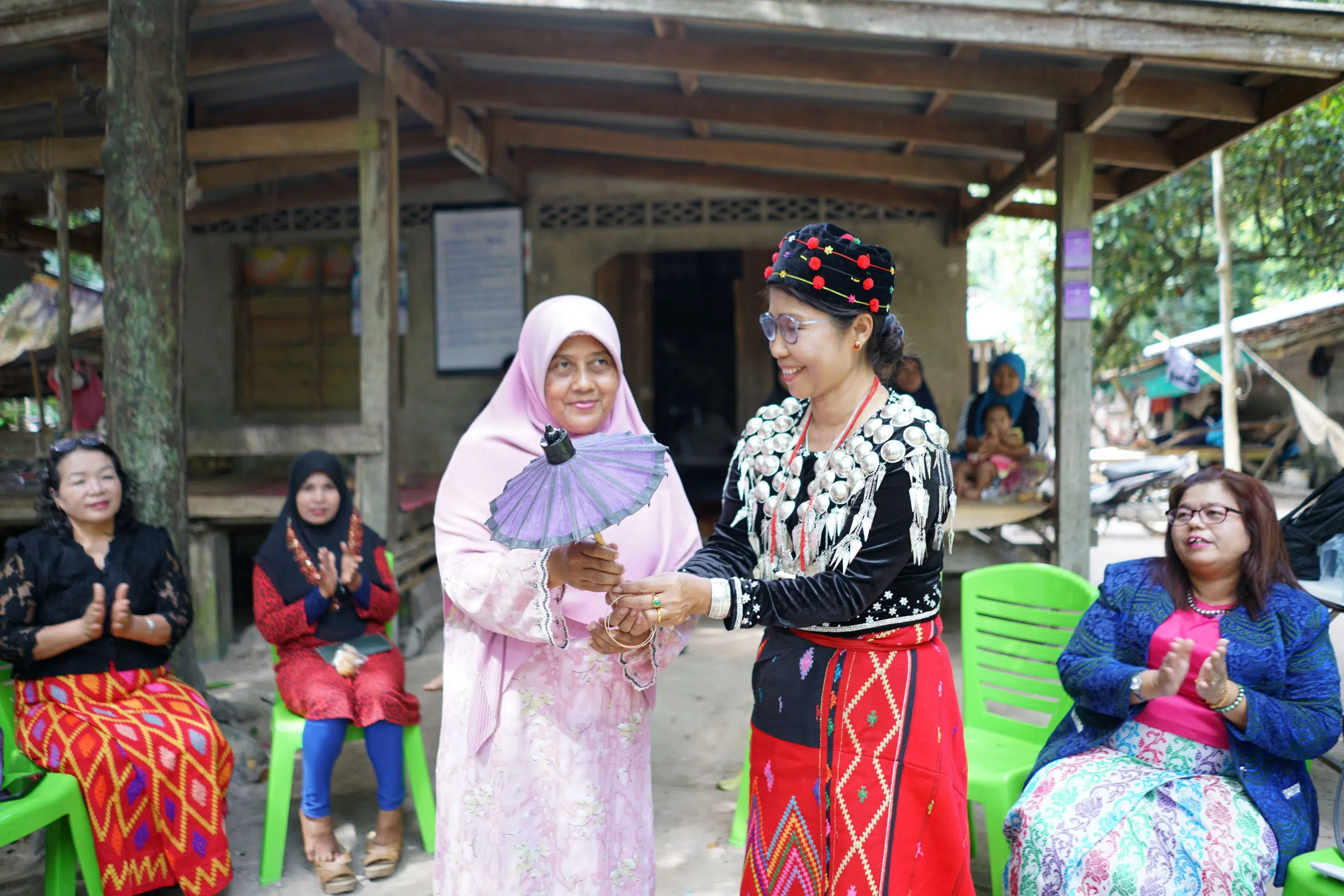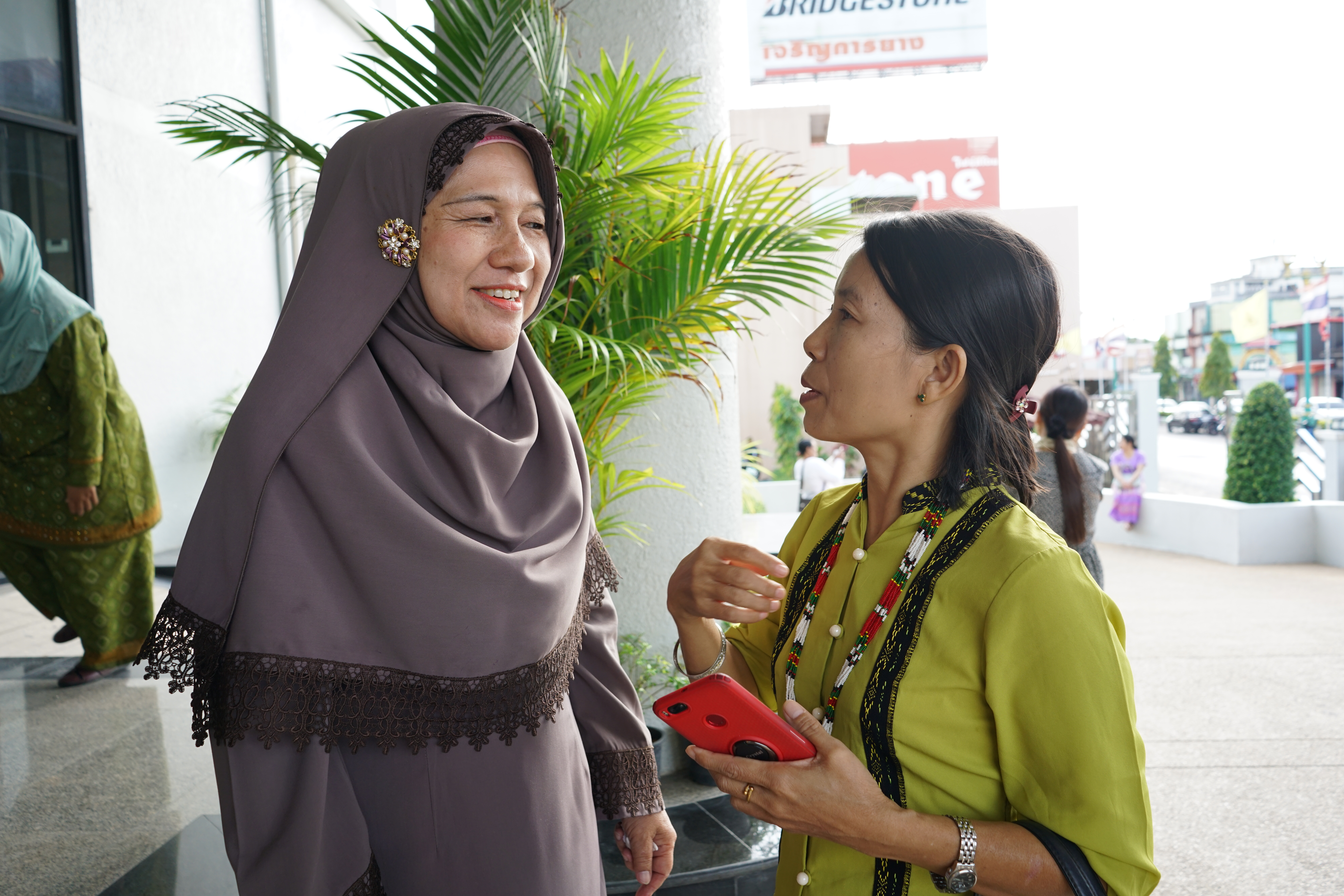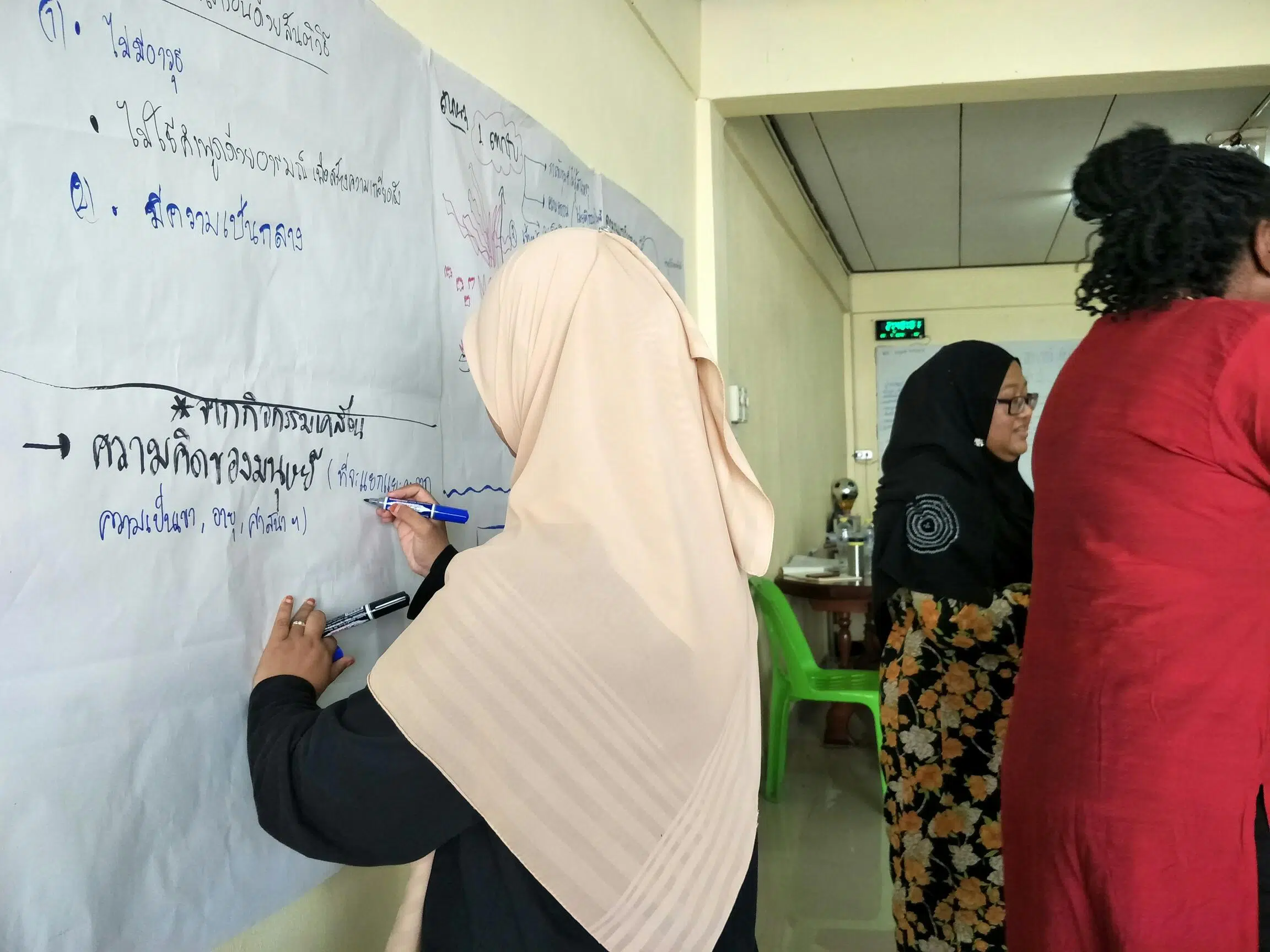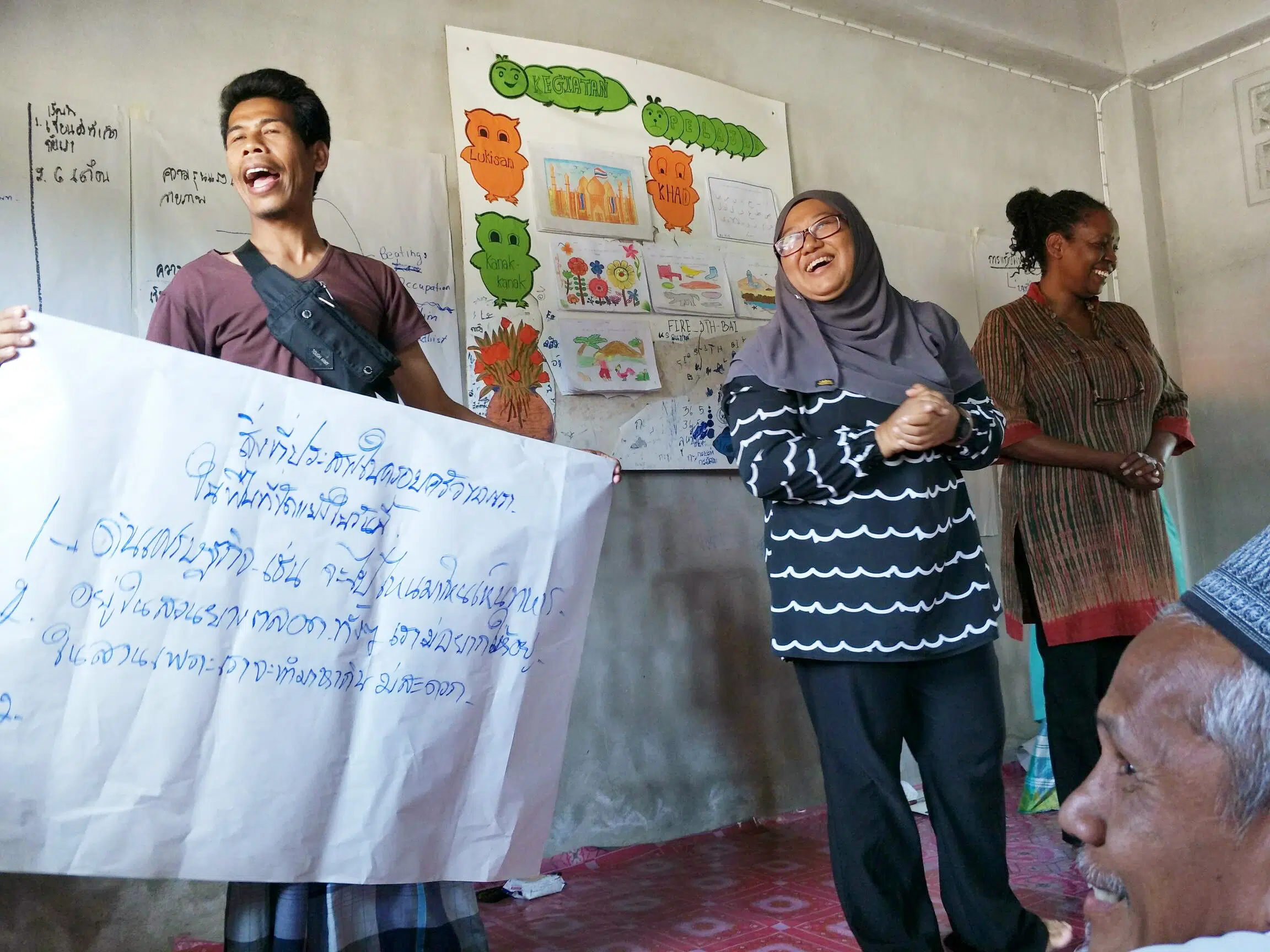Thailand

The need for protection in Thailand
The conflict between the government of Thailand and various Pattani Malay separatist groups can be traced back to more than a century ago, when the Pattani people were forcibly assimilated into the Thai culture. The Thai government and Malay separatist groups have been in peace talks on and off since 2013. And, although dialogues in February 2023 are pointing towards a roadmap for the 2023-2024 peace process, women are not included in these high-level discussions, and local groups remain wary of its success—and how that translates to peace in Southern Thailand.
Thailand continues to feel the destabilizing effects of the situation in neighboring Myanmar: Apart from internal displacement within Myanmar, there could be as many as 30,000 asylum seekers across the border in Thailand who are facing insecurity without any official status and the constant risk of detention.
NP’s work in Thailand
Our work in Thailand began in 2015, when NP teamed up with Rotary Clubs of St. Paul, Minnesota, U.S. and Khuanlang-Hatyai, Thailand for three workshops on civilian engagement in peace processes. From these workshops, our Thai relationships grew.
Civil society groups have been crucial in providing various support and services to victims and survivors of violence. From 2016 to the present, most of NP's work has been in Southern Thailand—in Patani, Yala and Narathiwat Provinces—through collaboration with local partners.
Protection capacity enhancement:NP hosts training and lecture series on Unarmed Civilian Protection (UCP). Additionally, NP supports research initiatives: NP Philippines has facilitated small grant research on UCP opportunities and developing civilian protection guidelines.
Women Peace and Security (WPS): NP promotes WPS and connecting women civil society organizations in Southern Thailand with the broader southeast Asia community. For example, NP hosted a learning exchange between women civil society organizations in Myanmar, Mindanao (Philippines), Pattani (Thailand) and a university network in Indonesia.
The future of NP’s work in Thailand
In Southern Thailand, NP will support women-led groups on violence monitoring and reporting, provide rehabilitation support to torture and violence survivors, and work with youth who are at-risk of violence or recruitment to armed groups—in particular, by increasing space for young people to promote human rights and the peace process.
In Northern Thailand, NP will support those currently seeking temporary shelters in the Thai-Myanmar border region by connecting them to emergency provisions and protection, as well as mental health survival skills.

“Peace is a process rather than a goal.
We need to bear in mind that building peace
has building trust as its core."
Make a Gift Now



